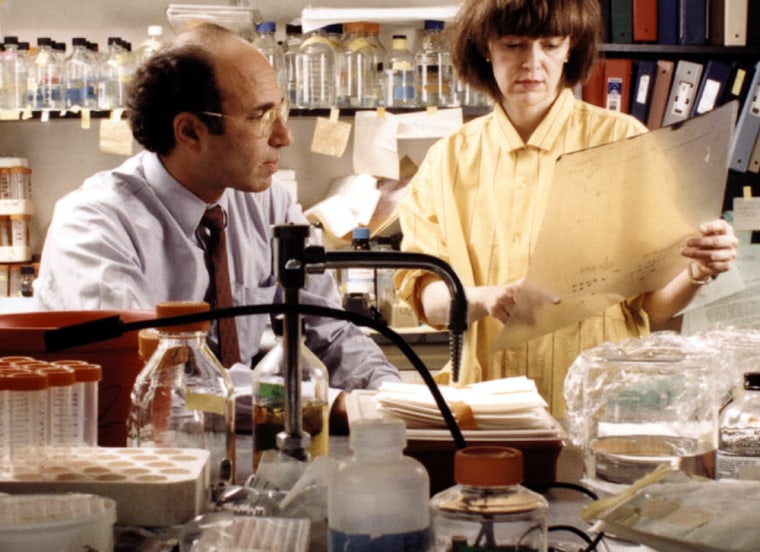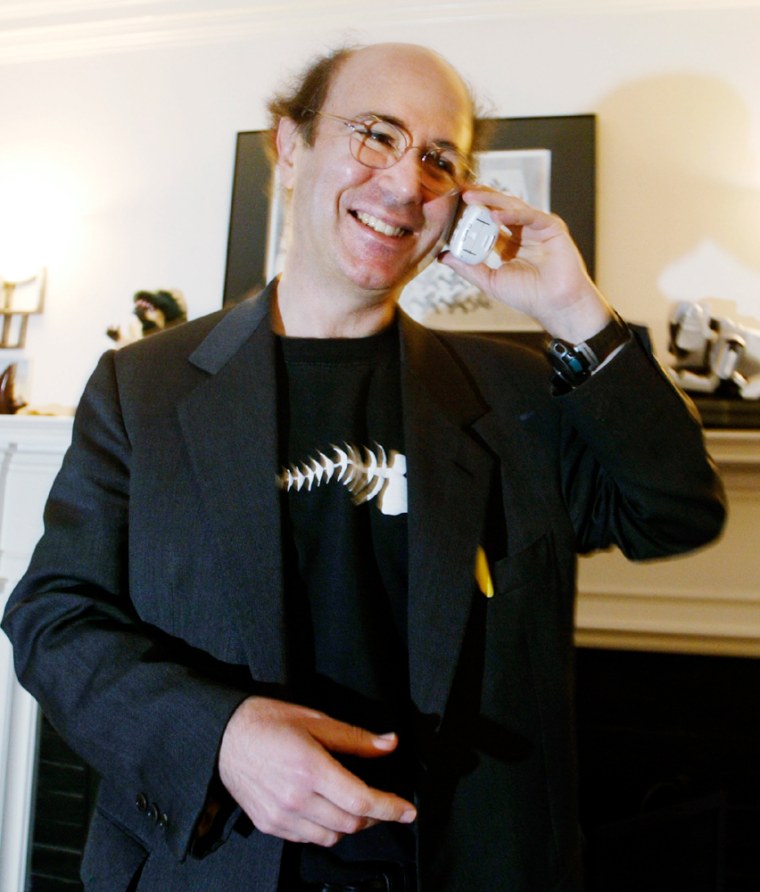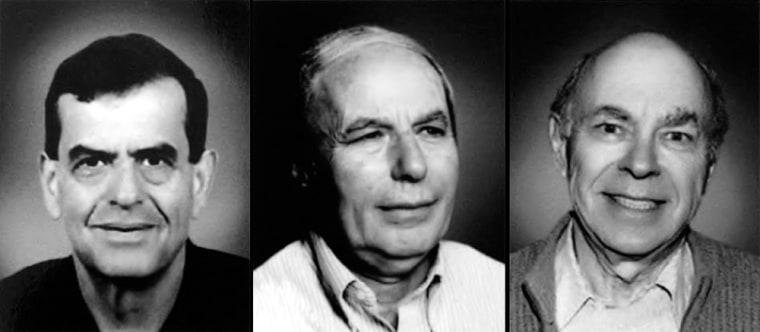Two Israelis and an American won the 2004 Nobel Prize for Chemistry on Wednesday for their work related to how the human body singles out unwanted proteins for destruction to defend itself from disease.
Aaron Ciechanover, 57, Avram Hershko, 67, and Irwin Rose, 78, were honored by the Royal Swedish Academy of Sciences for their work in the 1980s that discovered that cells give a chemical "kiss of death" to proteins that must be destroyed.
The marked proteins are then chopped to pieces. When such degradation fails to work correctly, the result can be diseases like cervical cancer and cystic fibrosis. So research in this area may lead to new drugs for those diseases and others, the academy said.
The winners’ discovered "ubiquitin-mediated protein degradation" which governs such processes as "cell division, DNA repair, quality control of newly-produced proteins, and important parts of the immune defense," the academy said in its citation.
Ciechanover is director of the Rappaport Family Institute for Research in Medical Sciences at the Technion, in Haifa, Israel, while Hershko, originally from Hungary, is a professor there.
Rose is a specialist at the department of physiology and biophysics at the college of medicine at the University of California-Irvine.
All three will share the $1.3 million cash prize.
Sweet smell of success
The announcements of this year’s Nobel Prize awards, named after the wealthy Swedish industrialist and inventor of dynamite, began Monday.
The Nobel Prize in medicine went to Americans Richard Axel and Linda B. Buck.

Axel, 58, and Buck 57, were selected by a committee at Stockholm’s Karolinska Institutet for their work on the sense of smell.
They clarified the intricate biological pathway from the nose to the brain that lets people sense smells.
A whiff of an odor brings a mix of different molecules into the nose, where each molecule activates several odor receptors. This pattern of activation is interpreted by the brain, letting people recognize and form memories of about 10,000 different odors.

On Tuesday, the 2004 Nobel Prize in physics was awarded to Americans David J. Gross, H. David Politzer and Frank Wilczeck for their exploration of the force that binds particles inside the atomic nucleus.
The trio, researchers at the University of California, Santa Barbara, the California Institute of Technology and the Massachusetts Institute of Technology, made important theoretical discoveries “concerning the strong force, or the 'color force' as it is also called,” the foundation said.
The “strong force” is the dominant force inside the nucleus that acts between the quarks inside the proton and the neutron, the foundation said in its citation.
Their discoveries, published in 1973, led to the theory of quantum chromodynamics, or QCD.
Literature, peace prizes to be announced
Also on Tuesday, the Swedish Academy announced that literature prize will be revealed on Thursday. Several authors, including Philip Roth, Joyce Carol Oates, Canadian Margaret Atwood and Somalian Nuruddin Farah, have been touted as possible winners.
The winner of the coveted peace prize — the only one not awarded in Sweden — will be announced Friday in Oslo, Norway.
The Bank of Sweden Prize in Economic Sciences in Memory of Alfred Nobel will be announced Oct. 11.
The prizes, which include a $1.3 million check, a gold medal and a diploma, are presented on Dec. 10, the anniversary of Nobel’s death in 1896.
